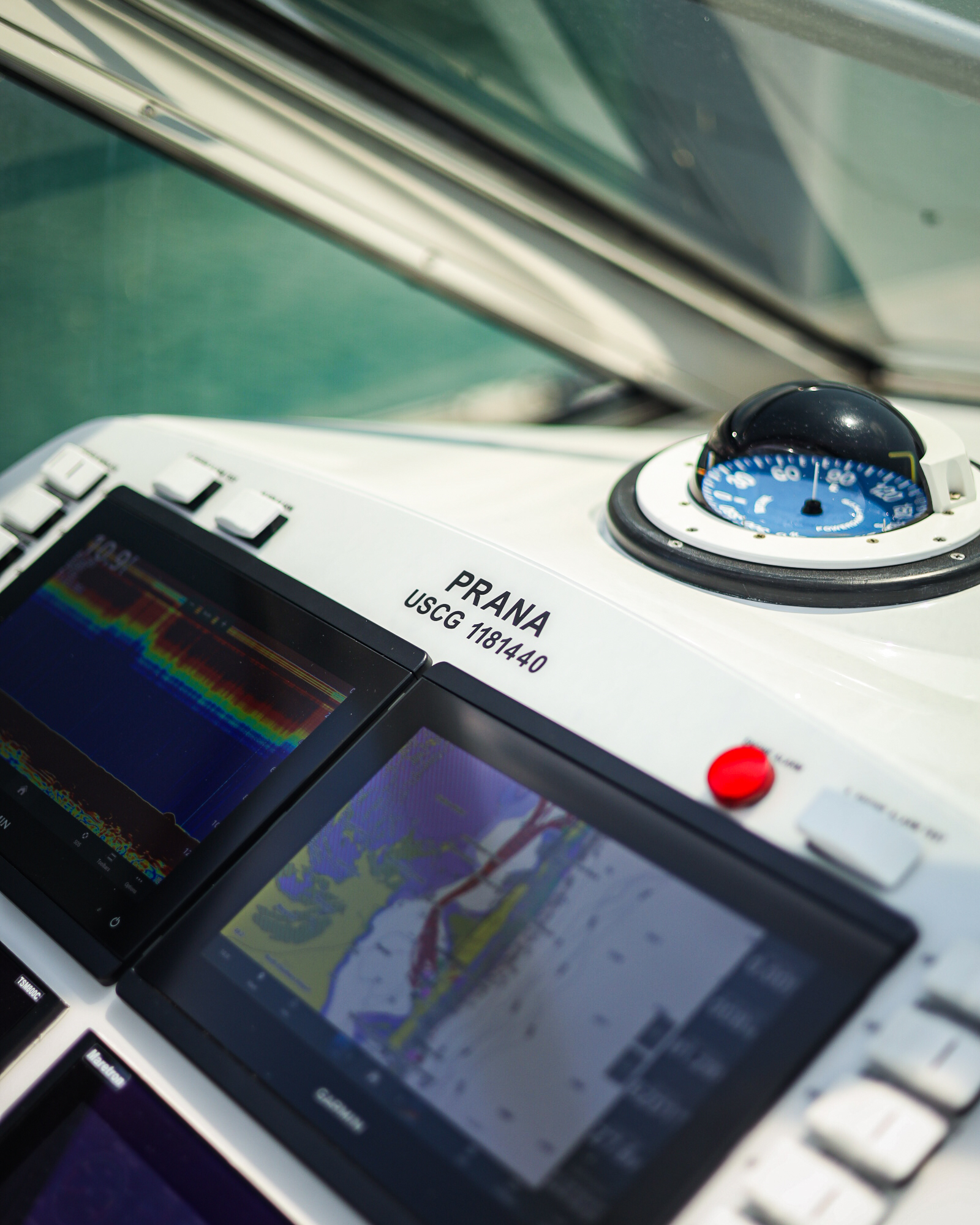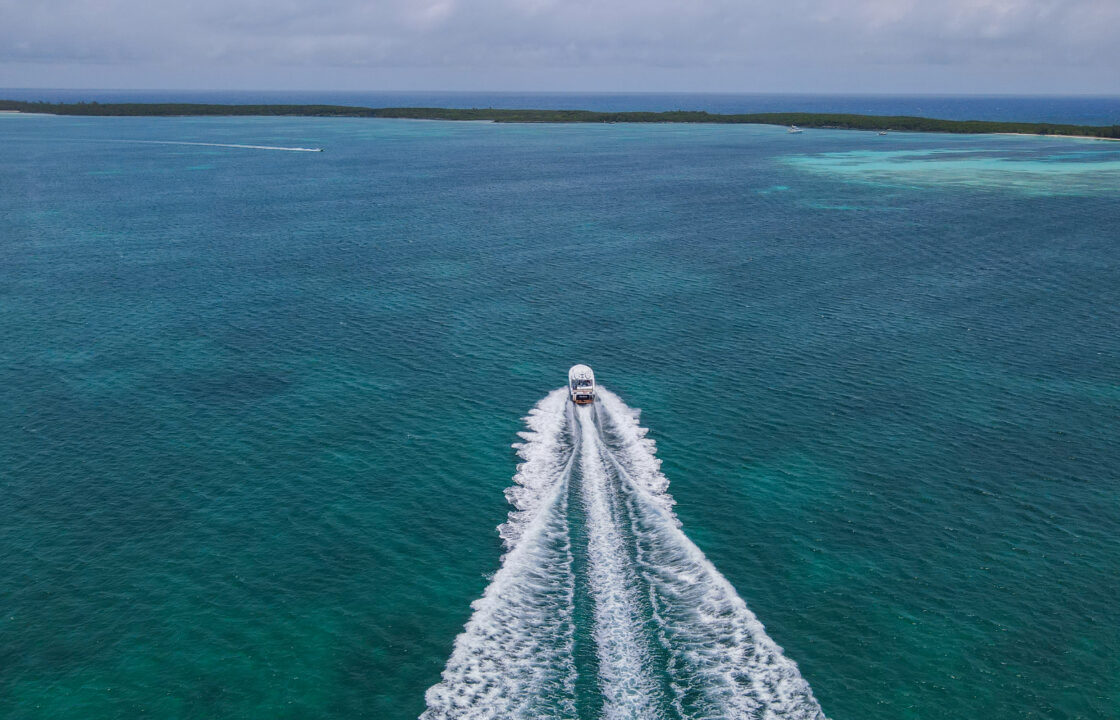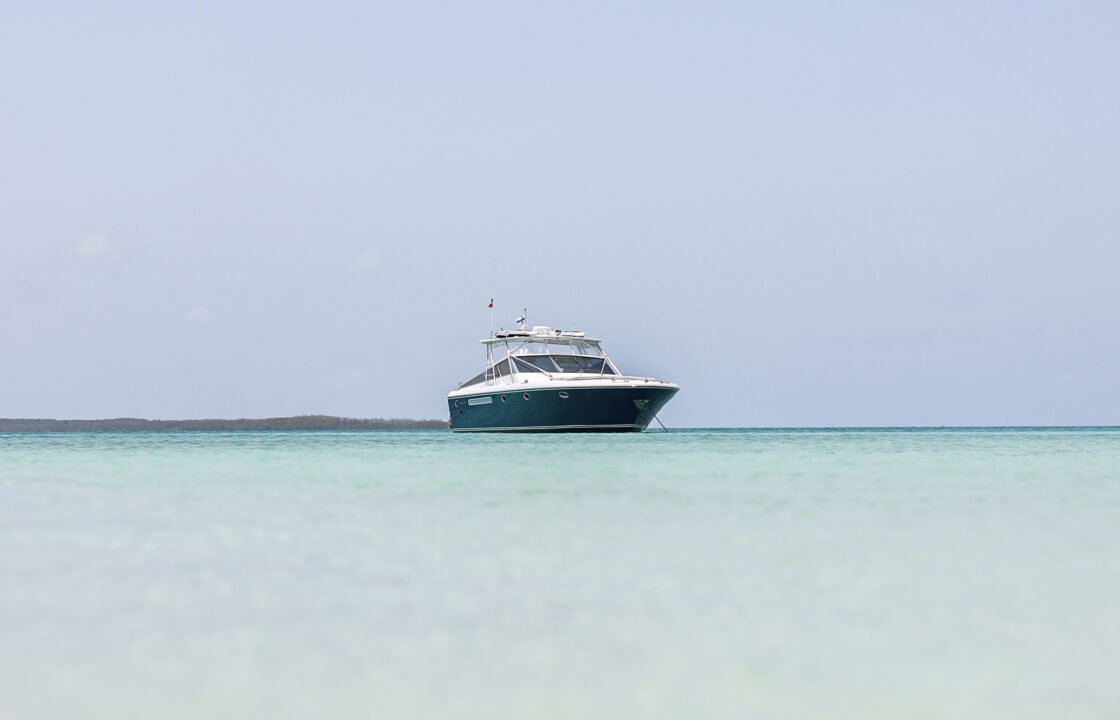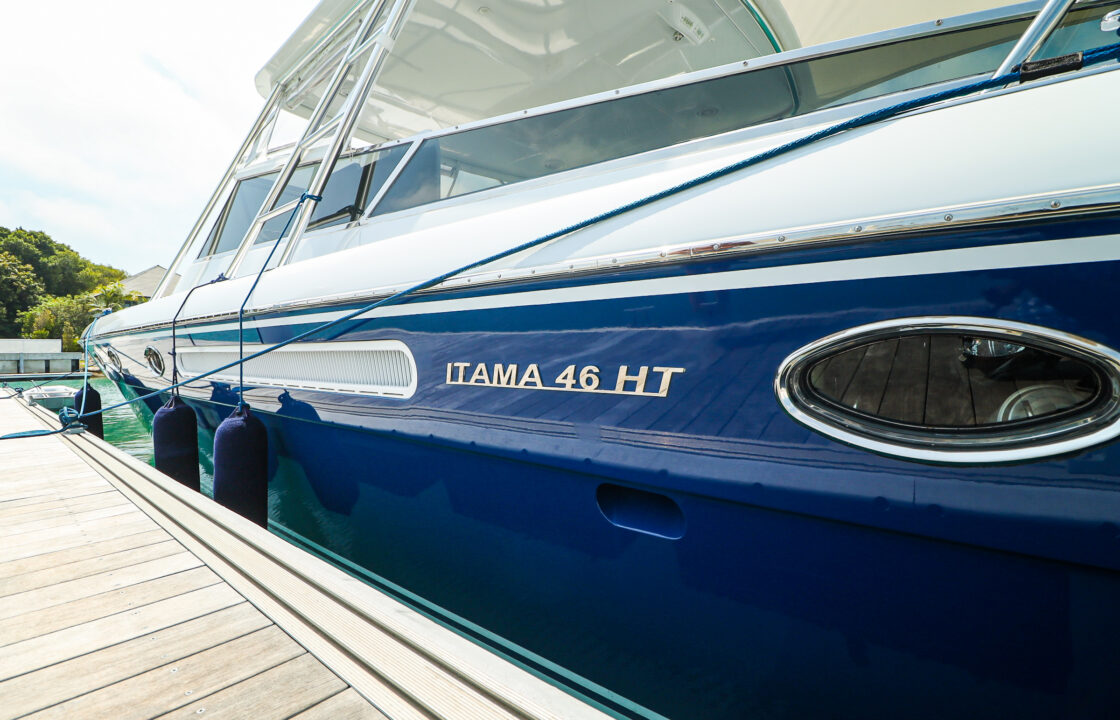
-
by admin
I. Introduction
A. The evolution of yacht technology
The journey from simple sailboats to modern engineering marvels is a testament to human ingenuity. Over centuries, yachts have transformed from basic wind-powered vessels to sophisticated floating palaces. The integration of cutting-edge technology in luxury yachts has accelerated dramatically in recent decades, revolutionizing the yachting experience.
Today’s smart yachts are at the forefront of maritime innovation, offering a seamless blend of luxury, efficiency, and advanced technology. These vessels push the boundaries of what’s possible on water, providing experiences that were once the realm of science fiction.
B. Definition of a “smart yacht”
A smart yacht is characterized by its integration of advanced technologies that enhance navigation, power management, onboard automation, connectivity, and overall user experience. Key characteristics include:
- Automated systems for navigation, docking, and stabilization
- Intelligent power management and eco-friendly propulsion
- Advanced connectivity and IoT integration
- AI-powered yacht management systems
- Cutting-edge entertainment and comfort technologies
Smart yachts differ from traditional luxury vessels in their ability to anticipate and adapt to user needs, optimize performance, and provide unprecedented levels of control and customization.
II. Advanced Navigation Systems
A. GPS and satellite technology
Modern smart yachts utilize state-of-the-art GPS and satellite technology for navigation:
- High-precision positioning systems accurate to within centimeters
- Real-time weather and ocean condition updates integrated with navigation systems
- Seamless integration with global maritime traffic systems for enhanced safety
B. Augmented reality navigation displays
Augmented reality (AR) is revolutionizing yacht navigation:
- Heads-up displays for captains and crew, providing critical information without distracting from the surroundings
- Overlay of navigation data on real-world views, enhancing situational awareness
- AR-enhanced charts and 3D mapping for intuitive navigation in complex waterways
C. Autonomous docking systems
AI-powered precision docking systems are becoming increasingly common in smart yachts:
- Sensor integration for safe berthing, including sonar, lidar, and camera systems
- Automated thrusters and propulsion control for precise maneuvering
- Reduced crew requirements for docking procedures, enhancing safety and efficiency
D. Collision avoidance technology
Smart yachts incorporate advanced collision avoidance systems:
- Cutting-edge radar and sonar systems for early detection of obstacles
- Predictive algorithms for collision prevention, considering factors like speed, direction, and sea conditions
- Integration with AIS (Automatic Identification System) for real-time tracking of nearby vessels
III. Intelligent Power Management
A. Hybrid and electric propulsion systems
Smart yachts are leading the charge in sustainable propulsion:
- Combination of traditional engines with electric motors for optimal efficiency
- Significantly reduced emissions and fuel consumption
- Silent cruising capabilities for enhanced comfort and minimal environmental impact
B. Smart energy distribution
Intelligent power management systems ensure efficient use of onboard energy:
- Automated load balancing to optimize power distribution
- Priority-based power allocation for critical systems
- Real-time monitoring and adjustment of energy consumption
C. Solar and wind power integration
Renewable energy sources are increasingly integrated into smart yacht design:
- Photovoltaic panels seamlessly incorporated into the yacht’s structure
- Retractable wind turbines for energy generation while at anchor or underway
- Advanced energy storage solutions to maximize the use of renewable sources
D. Battery technology advancements
The latest advancements in marine battery technology include:
- High-capacity, marine-grade lithium-ion batteries
- Fast-charging capabilities for reduced downtime
- Long-term energy storage solutions for extended cruising ranges
IV. Onboard Automation
A. AI-powered yacht management systems
Artificial Intelligence is at the heart of smart yacht operations:
- Central control systems that manage all yacht functions
- Machine learning algorithms for continual optimization of performance
- Predictive maintenance scheduling to prevent unexpected downtime
B. Smart lighting and climate control
Intelligent environmental systems enhance comfort and efficiency:
- Automated adjustment of lighting and climate based on time, weather, and occupancy
- Energy-efficient LED systems with customizable mood lighting
- Zoned climate control for personalized comfort in different areas of the yacht
C. Automated trim and stabilization systems
Smart yachts offer a smoother sailing experience through:
- Active fin stabilizers that reduce roll in various sea conditions
- Dynamic ballast adjustment for optimal performance and fuel efficiency
- Automated trim tabs that continually adjust to changing speeds and sea states
D. Voice-activated controls
Natural language interfaces are becoming standard in smart yachts:
- Voice control of various yacht systems, from entertainment to navigation
- Multilingual support to accommodate international crews and guests
- Integration with personal AI assistants for a seamless user experience
V. Enhanced Connectivity
A. Satellite internet and 5G integration
Staying connected at sea is easier than ever:
- High-speed internet access, even in remote locations
- Seamless transition between satellite and cellular networks
- Intelligent bandwidth management to prioritize critical systems
B. IoT (Internet of Things) on yachts
The Internet of Things is transforming yacht operations:
- Connected devices for comprehensive monitoring and control of yacht systems
- Smart sensors provide real-time data on everything from engine performance to water quality
- Integration of personal devices with yacht systems for a customized experience
C. Remote monitoring and control
Smart yachts offer unprecedented levels of remote access:
- Ability to manage yacht systems from anywhere in the world
- Real-time performance data and alerts sent to owners and crew
- Remote troubleshooting and software updates to minimize downtime
D. Cybersecurity considerations
With increased connectivity comes a need for robust cybersecurity:
- Advanced encryption of sensitive data and communications
- Next-generation firewalls and intrusion detection systems
- Regular security audits and updates to protect against evolving threats
VI. Entertainment and Comfort Technologies
A. Immersive audio-visual systems
Smart yachts offer unparalleled entertainment experiences:
- 360-degree surround sound systems for immersive audio
- 8K ultra-high-definition displays for stunning visual quality
- Outdoor entertainment areas with weather-resistant technology
B. Virtual and augmented reality experiences
VR and AR technologies open new possibilities for onboard entertainment:
- Dedicated VR rooms for gaming and virtual experiences
- AR-enhanced sightseeing, providing information about points of interest
- Virtual yacht tours for remote guests or potential buyers
C. Smart glass and privacy control
Advanced glass technologies enhance comfort and privacy:
- Electrochromic glass that can instantly switch from transparent to opaque
- Adjustable tinting for energy efficiency and glare reduction
- Integrated displays in windows and mirrors for information and entertainment
D. Wellness technology integration
Smart yachts prioritize the health and well-being of passengers:
- Advanced air purification systems for optimal indoor air quality
- Water quality management and remineralization systems
- Circadian lighting systems to improve sleep patterns
- Smart gym equipment with personalized training programs
VII. Safety and Security Innovations
A. Advanced fire detection and suppression systems
Smart yachts incorporate cutting-edge fire safety technologies:
- AI-powered early warning systems for rapid fire detection
- Targeted suppression systems to minimize damage and water usage
- Integration with ventilation systems for effective smoke control
B. Man-overboard detection and recovery technology
Enhanced safety features protect passengers and crew:
- Wearable devices that alert the yacht’s systems if someone falls overboard
- Automated alarm and GPS marking of man-overboard location
- Deployment of rescue drones or autonomous life-saving equipment
C. Biometric access control
Advanced security measures protect sensitive areas:
- Fingerprint and facial recognition systems for restricted access zones
- Personalized access levels for crew and guests
- Integration with smart home-style automation for a seamless experience
D. Drone-assisted security and reconnaissance
Unmanned aerial vehicles enhance yacht security and navigation:
- Automated perimeter patrols for enhanced situational awareness
- Aerial viewing of surroundings to assist with navigation and security
- Rapid deployment of life-saving equipment in emergency situations
VIII. Eco-Friendly Smart Technologies
A. Waste management and recycling systems
Smart yachts prioritize environmental responsibility:
- Automated sorting and processing of onboard waste
- Compact waste-to-energy converters for reduced environmental impact
- Greywater recycling systems for non-potable uses like deck washing
B. Smart water purification and desalination
Efficient water management is crucial for extended voyages:
- Energy-efficient reverse osmosis systems for freshwater production
- Intelligent water usage monitoring and conservation
- UV and advanced filtration for ensuring onboard water safety
C. Hull cleaning and antifouling innovations
Smart technologies keep yacht hulls clean and efficient:
- Self-cleaning hull coatings that reduce marine growth
- Robotic hull cleaning systems for regular maintenance
- Ultrasonic antifouling technology to prevent barnacle attachment
D. Noise and vibration reduction technologies
Enhancing comfort through advanced noise control:
- Active noise cancellation systems throughout the yacht
- Advanced hull designs that reduce wake and engine noise
- Smart engine mounts that adapt to different operating conditions for optimal vibration isolation
IX. Maintenance and Diagnostics
A. Predictive maintenance systems
AI-driven maintenance optimizes yacht performance and reliability:
- Continuous analysis of component performance data
- Early warning systems for potential failures
- Optimization of maintenance schedules based on actual usage and wear
B. 3D printing for spare parts
Onboard manufacturing capabilities reduce downtime:
- 3D printers capable of fabricating a wide range of replacement components
- Reduced need for extensive spare part inventory
- Ability to create custom parts for unique requirements
C. AR-assisted repairs and maintenance
Augmented reality enhances maintenance procedures:
- Step-by-step guidance for technicians performing complex repairs
- Remote expert assistance through AR interfaces
- Visual overlays of system schematics and real-time data
D. Digital twins for yacht systems
Virtual replicas provide powerful analytical tools:
- Creation of digital twins for all major yacht systems
- Real-time monitoring and simulation of yacht performance
- Scenario testing for performance optimization and troubleshooting
X. The Future of Yacht Design
A. Integration of technology in yacht aesthetics
The future of yacht design seamlessly blends form and function:
- Sensors and displays integrated invisibly into yacht structures
- Adaptive exteriors with programmable lighting and surface properties
- Biomimetic design elements inspired by marine life for improved efficiency
B. Modular and adaptable layouts
Flexibility becomes a key feature in smart yacht design:
- Reconfigurable interior spaces that adapt to different uses
- Expandable decks and beach clubs for increased outdoor living space
- Detachable tender boats and integrated submersibles for exploration
C. Sustainable and biomimetic design approaches
Environmental considerations drive innovation in yacht design:
- Increased use of recycled and eco-friendly materials in construction
- Designs inspired by nature for improved hydrodynamics and efficiency
- Integration of living walls and onboard gardens for improved air quality and aesthetics
D. Virtual reality in yacht design and customization
VR technologies revolutionize the yacht design and sales process:
- Immersive design experiences allow buyers to visualize custom yachts
- Real-time visualization of customization options
- Virtual sea trials and performance simulations for informed decision-making
XI. Regulatory Landscape
A. Maritime regulations for smart technologies
The rapid pace of innovation presents regulatory challenges:
- Evolving standards for autonomous systems and AI in maritime applications
- New compliance requirements for cutting-edge yacht technologies
- International cooperation on developing smart yacht regulations
B. Data privacy and protection
Protecting sensitive information becomes increasingly important:
- Regulations governing the collection and use of onboard data
- Compliance with GDPR and other international privacy laws
- Secure storage and transmission of sensitive owner and guest information
C. Standardization efforts in the industry
Industry-wide standards are crucial for the growth of smart yacht technology:
- Development of common protocols for smart yacht systems
- Interoperability standards to ensure compatibility between different manufacturers
- Certification programs for smart yacht technologies to ensure safety and reliability
XII. Case Studies
A. Notable smart yacht projects
Examining groundbreaking vessels that push technological boundaries:
- Analysis of successful implementations of smart technologies
- Lessons learned from pioneering smart yacht builds
- Impact of these projects on the broader yachting industry
B. Technological innovations from leading yacht builders
Showcasing cutting-edge features from top manufacturers:
- Comparison of different approaches to smart yacht design
- Emerging trends in luxury yacht technology
- Predictions for future innovations based on current developments
XIII. The Human Element
A. Training for crew and owners
Adapting to new technologies requires comprehensive training:
- New skill requirements for operating and maintaining smart yachts
- Ongoing education programs to keep pace with evolving technologies
- Bridging the gap between traditional seamanship and high-tech operations
B. Balancing technology with the yachting experience
Maintaining the essence of yachting in a high-tech environment:
- Ensuring technology enhances rather than replaces the joy of sailing
- Customizable levels of automation to suit individual owner preferences
- Preserving the connection with the sea and nature
C. Accessibility and user interface design
Making smart yacht technology accessible to all users:
- Intuitive controls suitable for users of all ages and tech-savviness levels
- Adaptable interfaces for different user roles (owner, guest, crew)
- Consideration of accessibility needs in smart yacht design
XIV. Conclusion
A. The impact of smart technology on the yachting industry
Smart technology is transforming every aspect of yachting:
- Revolutionizing yacht building and operation practices
- Changing expectations of luxury, performance, and sustainability in yachting
- Enhancing safety and environmental responsibility in maritime activities
B. Predictions for future innovations
The future of smart yachts holds exciting possibilities:
- Continued advancements in AI and machine learning applications
- Potential for smart yachts to contribute to ocean research and conservation efforts
- Integration of emerging technologies like quantum computing and advanced materials
Smart yachts represent the pinnacle of maritime luxury and technology, offering unparalleled experiences while pushing the boundaries of innovation. As these vessels continue to evolve, they redefine the concept of luxury at sea and contribute to advancements that benefit the entire maritime industry.
Keywords: smart yachts, maritime technology, yacht automation, AI in yachting, connected boats, eco-friendly yachts, yacht navigation systems, maritime IoT, yacht cybersecurity, luxury marine innovations


